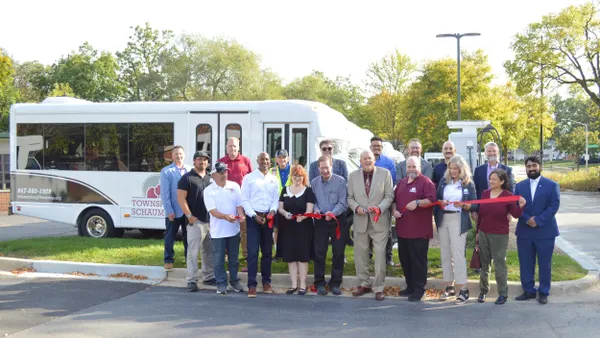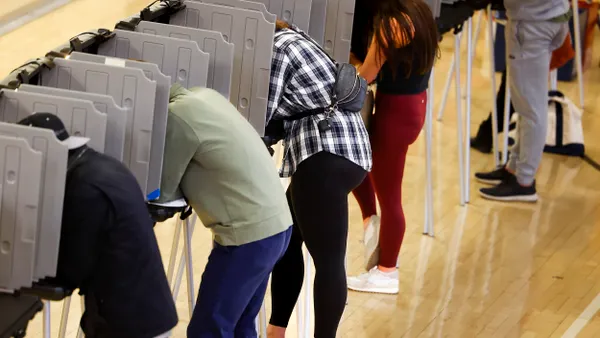Dive Brief:
- The city of Birmingham, AL is looking to begin an on-demand microtransit pilot program, according to a request for proposals (RFP) issued last week that called for partners.
- The vehicles must carry at least six passengers at once, must be accessible without a smartphone and must operate within the entire city limits. Additionally, wait times must not exceed 15 minutes.
- Prospective partners have until Nov. 26 to file applications to be a partner in the one-year pilot, which could be extended if successful.
Dive Insight:
In the RFP, Birmingham officials note the unique challenges of a city that is still heavily reliant on cars but also struggling with a widening poverty gap. The city has 1.1 million people in its metropolitan area, and of that population, 29% live in poverty. To make things even more difficult, the city’s bus and paratransit do not meet the city’s needs. The RFP says 62% of households are underserved, and less than half of the 163,000 jobs in the city are accessible by transit. Meanwhile, only 28% of workers live within a half-mile of a transit station.
Residents thus have few options beyond personal vehicles, while low-income residents need to either spend a large percentage of their income on the upkeep of a car or not own a car at all, and therefore be limited in transportation options for daily tasks. This mirrors issues in cities like Detroit, which have traditionally been reliant on personal transportation but are trying to change that with ambitious strategic plans and microtransit to connect people to public transportation.
City planners nationwide have struggled to solve the “first-mile, last-mile” problem, and are looking to technology such as autonomous vehicles (AVs) to fill the gap, as well as ride-hailing companies like Uber and Lyft. Many cities are looking to dockless bikes and scooters to help fill that gap, while Detroit has partnered with Lyft on a pilot to connect riders with transit.
With issues surrounding equity and access to transit, this pilot could help Birmingham residents be less reliant on cars. And with the city having already gained accolades from the Smart Cities Council for its work in thinking about how to improve its transportation, it is clearly on a path towards reducing single-occupancy vehicles on its roads.











